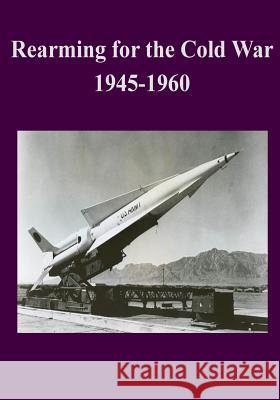Rearming for the Cold War 1945-1960 » książka
Rearming for the Cold War 1945-1960
ISBN-13: 9781502945884 / Angielski / Miękka / 2014 / 772 str.
World War II was one of history's watersheds-an event of such great consequence that it destroyed or dramatically altered political, economic, and social structures and patterns in place when the conflict began, setting most of the earth's nations and peoples on new courses. Worldwide, for example, the war hastened the end of Western colonialism. At its founding in 1945, the United Nations comprised 51 nations. By 1961, membership had more than doubled to 104 nations; two-thirds of the new arrivals were former colonies of the European states.1 In the United States, the war was the catalyst for far-reaching economic and social changes, including the industrialization of the South and the West and equality for women and blacks. But most immediate and significant was that it revolutionized the nation's role in international affairs. Following the war, the United States turned away from its traditional isolationism and took up leadership of the world's democracies. To fulfill this responsibility and to preserve the nation's security, American leaders felt compelled to maintain powerful military forces. This conviction, coupled with the decision to anchor military strength in advanced weapons technologies, meant that the acquisition of materiel, a function that had also been transformed by the war, would assume unprecedented importance even in peacetime. Until 1945, except in wars, the United States had followed an "isolationist" foreign policy. This did not mean that the nation cut itself off from the world; Americans had traded continuously with other nations since colonial times. Rather, the United States shied away from making formal, peacetime political and military commitments with other nations, particularly in Europe. Thus, after World War I, the Senate refused to ratify the Treaty of Versailles, strongly supported by President Woodrow Wilson, that would have made the United States a member of the League of Nations.
Zawartość książki może nie spełniać oczekiwań – reklamacje nie obejmują treści, która mogła nie być redakcyjnie ani merytorycznie opracowana.











